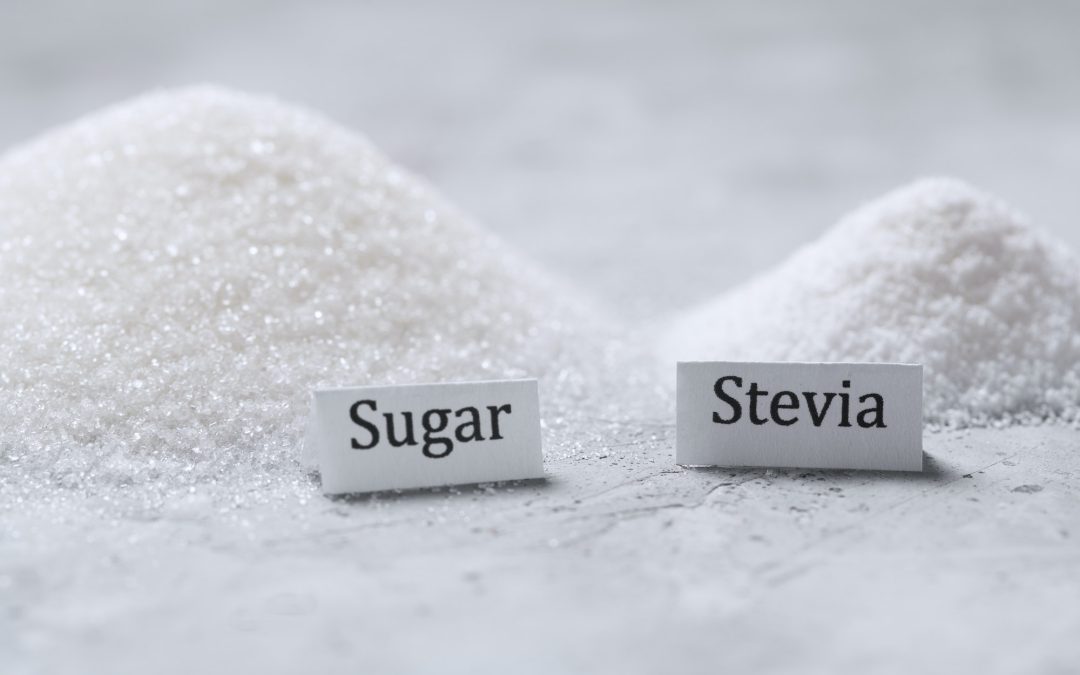If you want an alternative to added sugar, avoid artificial sweeteners. Learn about the link between artificial sweeteners and cardiovascular disease.
According to a study appearing in The BMJ, there may be a link between artificial sweeteners and a higher risk for cardiovascular disease (CVD). The study, which was conducted by the French National Institute for Health and Medical Research, is the largest study to date analyzing the connection between the two.
Are Artificial Sweeteners Safe?
 People may use artificial sweeteners like stevia, sucralose, and saccharin as an alternative to sugar as a way to lose weight or control their blood sugar. While there have always been concerns regarding the use of sweeteners, the Food and Drug Administration considers them generally safe to use. However, they are only considered safe so long as people don’t exceed the acceptable daily intake for each type.
People may use artificial sweeteners like stevia, sucralose, and saccharin as an alternative to sugar as a way to lose weight or control their blood sugar. While there have always been concerns regarding the use of sweeteners, the Food and Drug Administration considers them generally safe to use. However, they are only considered safe so long as people don’t exceed the acceptable daily intake for each type.
However, the research by the French National Institute for Health and Medical Research may suggest otherwise. The study included over 100,000 participants that reported their consumption of artificial sweeteners. As part of the study, participants consumed aspartame, acesulfame potassium, sucralose, cyclamates, saccharin, thaumatin, neohesperidine dihydrochalcone, steviol glycosides, and salt of aspartame-acesulfame potassium.
Once the study concluded, researchers compared the number of cardiovascular events in people who consumed sweeteners to the number experienced by people who didn’t consume sweeteners. According to their results, consuming artificial sweeteners led to a higher risk of CVD.
Problematic Sweeteners
“Our results indicate that these food additives, consumed daily by millions of people and present in thousands of foods and beverages, should not be considered a healthy and safe alternative to sugar, in line with the current position of several health agencies,” explain the authors.
However, “occasional artificial sweetener consumption is not likely to have a strong impact on CVD risk, and so even if some consumption might have been missed, it would probably have had a low impact on the study results.”
Lastly, the authors point to three artificial sweeteners that were particularly problematic:
- “Aspartame intake was associated with increased risk of cerebrovascular events, and acesulfame potassium and sucralose were associated with increased coronary heart disease risk.”
Strengthening Your Heart
 Artificial sweeteners are typically found in highly processed foods, so if you really want to strengthen your heart, maybe it’s time to limit your consumption of processed foods altogether. Instead, focus on eating fresh fruits and vegetables, whole grains, and other heart-healthy food.
Artificial sweeteners are typically found in highly processed foods, so if you really want to strengthen your heart, maybe it’s time to limit your consumption of processed foods altogether. Instead, focus on eating fresh fruits and vegetables, whole grains, and other heart-healthy food.
In addition, you can give your heart an extra boost by exercising on a regular basis and taking supplements like L-arginine Plus. Its ingredients promote circulation, blood pressure health, and more. If you’re ready to give your heart the support it deserves, then avoid food products with artificial sweeteners and focus on eating heart-healthy food while taking L-arginine Plus.

